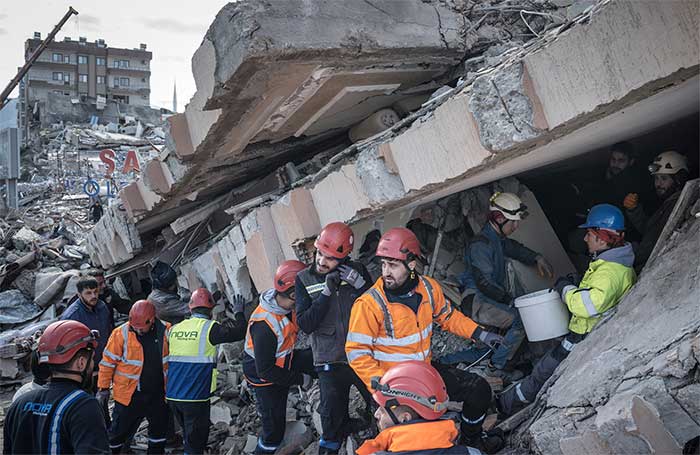We have seen the devastating impact that a major earthquake of over 6 on the Richter scale can cause, as evidenced by the recent earthquake in Turkey, which affected more than 105,000 people and resulted in approximately $104 billion in damages.
So why, despite the significant consequences and the potential for a long recovery process, do we still lack any effective measures to predict earthquakes in order to minimize the resulting damage?

Earthquakes occur very suddenly and are difficult to predict.
1. Earthquakes Occur Very Quickly and Their Locations Are Hard to Predict
According to Professor Ben van der Pluijm from the University of Michigan: “Earthquakes are not like a train that can accelerate; they happen suddenly and with enough force to destroy everything.”
2. There Are No Clear Signs Before They Occur
We often hear that animals can be sensitive to tremors and may become agitated before an earthquake. However, warnings from animals are still not reliable, and monitoring tectonic activity has not yet proven effective in accurately predicting the timing of earthquakes. This inability prevents us from issuing timely warnings like we do with weather forecasts.
3. Warning Systems Are Often Too Late
According to the American Geological Society, there is currently a system that can provide warnings before an earthquake, but the warning time is often very short and insufficient for people to evacuate and protect their property effectively, with an average warning time of only 20 seconds. Nevertheless, some measures can still be taken to ensure the safety of citizens, such as taking cover under a table or sturdy furniture and avoiding elevators, among others.
Of course, since we cannot effectively avoid earthquakes, we must focus on defense by ensuring the structural integrity of buildings in areas prone to earthquakes and providing safety education to the public to minimize unnecessary loss of life and property.




















































